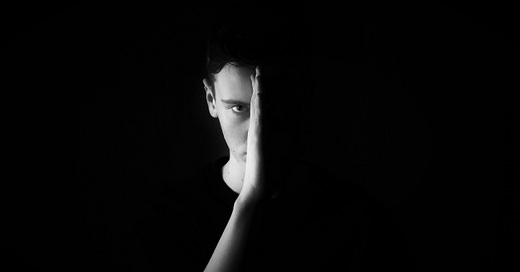I’m going on a bit of a rant today 😉. Because I’m really worried about something I hear all the time - and which is so not helpful.
Recently I have been supporting two women, in separate counties and in separate industries, both of whom are struggling with problematic and disrespectful behaviours from others at work. Think aggression, put-downs, gaslighting, blaming and shaming.
In each case they have attempted to hold the people engaging in these behaviours to account, to set boundaries, and to generally request to be treated with respect.
In each case, their concerns and requests have fallen on deaf ears: both from those who are engaging in the behaviours, and from others to whom they have taken their concerns. In each case, they have been told “it’s just personality conflict,” or “you need to be more understanding,” or “they’re just like that.”
And, at the risk of being utterly inappropriate, I’m going to call bullshit on that.
Yes of course people have different personalities.
But that is zero excuse for poor behaviour.
But that is so often how the “it’s just their personality” excuse is used: to shrug off and to dismiss hurtful, unhelpful, even harmful behaviours.
This trivializes it. It normalizes it. And it perpetuates it.
This is deeply personal for me.
My much younger brother was brain damaged by a tick-borne illness when he was just 20 months old. As he grew up, his behaviours could be very problematic. It was not his fault, not at all. There was actual, real, neurological damage.
And I still remember my parents sitting my older brother and I down and saying: “We know your brother doesn’t mean this. But he’s got to live in this world. He’s got to function in this society. So, unless we want to drug him to a zombie-state, or institutionalize him, we all—hard though it is sometimes—have to teach him how to behave.”
And we did.
It was hard. We had lots of support from wise counselors and teachers. For decades he did remarkably well. He had his eccentricities, but with perseverance, patience, and insistence, he did learn. And he did (mostly) behave.
So I’m sorry, but if my brain-damaged brother can do it, no leader or HR manager, no anyone really, has any excuse for dismissing poor behaviour as just “personality style.” And yes, I say that even being trained to work with trauma.
A lot of poor behaviour comes from really stressed out people. They are running on fumes, are under immense pressure, and are struggling to cope. I have a huge amount of empathy for this - it’s something I’ve lived myself, and hear from my clients. Severe and/or prolonged negative stress pushes people to their limit. People can - and do - snap. I’ll be the first to admit I have.
And…this is such an important and!...there are plenty of highly stressed people who don’t go around yelling, humiliating, shaming, belittling and demeaning others. There are plenty of people who, if they do snap, then apologize and make amends.
This isn’t about personality.
It’s about behaviour.
And a lot of the time it’s learned behaviour. They’ve seen others do it and not get corrected, and now they do it too.
“But what about narcissists?” someone asked me a while back.
To which I replied: “I don’t care if they are or are not narcissists. Maybe they are, maybe they’re not. I don’t find it helpful to diagnose or pathologize. I do care about their behaviour.”
Put the “narcissists” in certain contexts, and guess what, they behave! So they can do it. Which means, most especially in the workplace, we get to require that they do behave - i.e. that they do treat all people with respect. Period.
So please, don’t buy or accept “it’s just personality conflict.”
No. It’s just poor behaviour.
And it doesn’t have to be tolerated or excused. No matter how stressed out the person is. They’re allowed to have a bad day. Don’t we all! They’re not allowed to take their bad day, their stress, out on others.
That’s not personality. That’s just inappropriate behaviour.
Other articles you may enjoy reading:
The Tragedy of the Fundamental Attribution Error. When someone else does something we don’t like: it’s their character. When we do something others don’t like, it’s circumstances. This is the fundamental attribution error. And it's why so much of the feedback we give is inaccurate and which we receive just feels wrong.



